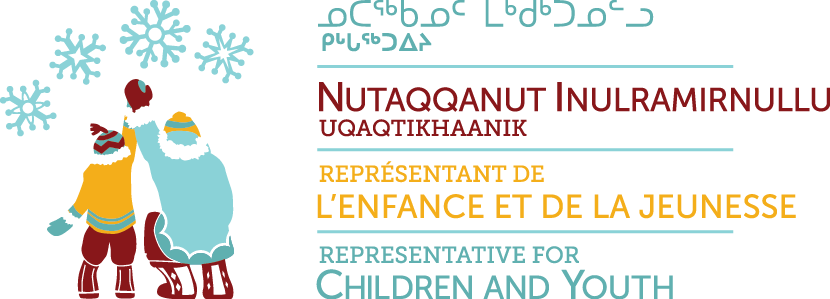May 5, 2016 (TORONTO) - The eleven members of the Canadian Council of Child and Youth Advocates (CCCYA) speak out in support of the Canadian Mental Health Association’s (CMHA) 65th Annual Mental Health Week (May 2 to 8, 2016).
The members of the CCCYA recognize the strength and courage of those children and youth across the country facing mental health challenges. We hear from them every day and we know of the struggles they face.
The CCCYA acknowledges the growing public awareness and concern about the mental health of Canada’s children and youth. This concern has lead to the development federally and in many provinces and territories of action plans, strategies and policies to improve the mental health of our children and youth. Yet, against the backdrop of these many strategies, plans, and initiatives, many children and youth are not receiving the mental health services they need.
We hear directly from children and youth and their families about the difficulties and barriers they face in getting help. Many simply do not know where to go for help. In some regions of the country, services are not available. In other regions, assessment and certain therapeutic options are not available locally, resulting in children and youth being sent away from their family and home community to receive the required treatment, possibly worsening their mental health problem. In many regions, waiting times for services can be several months or even years during which time the child or youth’s condition remains untreated or deteriorates. In several jurisdictions, there is a disconnect between services for youth and adults with young people falling through the cracks and not receiving the services they need once they reach the age of majority. Services are often difficult to navigate and there is lack of coordination between services and between service providers.
Some of the most vulnerable children and youth in Canada are most affected. Many children in government care experience complex, challenging and unmet mental health needs. Indigenous youth, who are disproportionately represented in the child welfare system, are also disproportionately impacted by the gaps in services and difficulties in accessing needed programs, as many live in the North and on reserve communities that experience the most serious lack of services.
The attached backgrounder contains examples provided by members of the CCCYA, outlining the experiences of children and youth across Canada in accessing mental health services.
The experiences of children and youth living with mental health issues, is far removed from the promises and position papers of our governments. Despite the growing awareness and understanding of the importance of good mental health and the consequences of unaddressed mental health problems, many children and youth are not receiving the services they need.
Coordinated effort and concrete action is required to ensure that needed services are in place, on the ground in communities — promotion of mental health and wellness, early intervention, timely assessments, culturally appropriate services and ability to access services close to home and community are needed. The CCCYA calls on the federal, provincial and territorial governments to work together to close the chasm between the promises and the reality. Canadian children deserve to be happy and healthy.
Child and Youth Mental Health in Canada:
Mental health disorders affect an estimated 10 to 20 per cent of Canadian youth. A staggering 3.2 million youth aged 12 to 19 years in Canada are at risk for developing depression and 5 percent of male youth and 12 per cent of female youth have experienced a major depressive episode. Suicide is among the leading causes of death in 15 to 24 year-old Canadians, second only to accidents. Canada’s youth suicide rate is the third highest in the industrialized world. Furthermore, many mental health problems show up in childhood and adolescence; up to 70 per cent of young adults living with mental health problems report that their symptoms started in childhood.i
Mental health issues present on a continuum, from mental health problems to debilitating mental health disorders. A mental health disorder or poor mental health can be disruptive to a child or a youth’s normal development affecting his or her experience in school, relationships with others including family and friends, and the ability to develop to their full potential. Without effective early intervention, mental health issues in childhood and adolescence can have long-term effects that reach beyond the individual, impacting their families and communities.
Tackling child and youth mental health disorders and promoting mental health wellness in children and youth is of critical importance. Prevention through mental health promotion, and early intervention to address early onset of mental health problems, are essential to improving mental health in youth. Positive mental health helps youth to chart a successful course through the changes from childhood to adulthood, through the challenges of adolescence and sets the foundations for life. Early detection of mental health problems and providing help can empower children and youth to increase the quality of their lives — throughout their lives.
It is estimated that only about one out of five children in Canada who need mental health services receives them.ii
iCanadian Mental Health Association, http://www.cmha.ca/news/cmhas-62nd-annual-mental-health-week/#.VxZorqu9dUMz
iibid.
-30-
About the Canadian Council of Child and Youth Advocates
The Canadian Council of Child and Youth Advocates is an alliance of legislatively mandated advocates for the rights of children and youth. These advocates may operate under various titles (e.g. Advocate, Representative, Ombudsman, Commissioner), but all are official representatives in their particular provinces and territories. All CCCYA members are independent statutory officers who report directly to the Legislative Assembly of their respective jurisdictions. Each CCCYA member office is established by legislation to operate in a manner that is independent from government authority or control. Council includes members from the nine provinces and two territories of Alberta, British Columbia, Manitoba, New Brunswick, Newfoundland and Labrador, Nova Scotia, Nunavut, Ontario, Québec, Saskatchewan, and Yukon.

